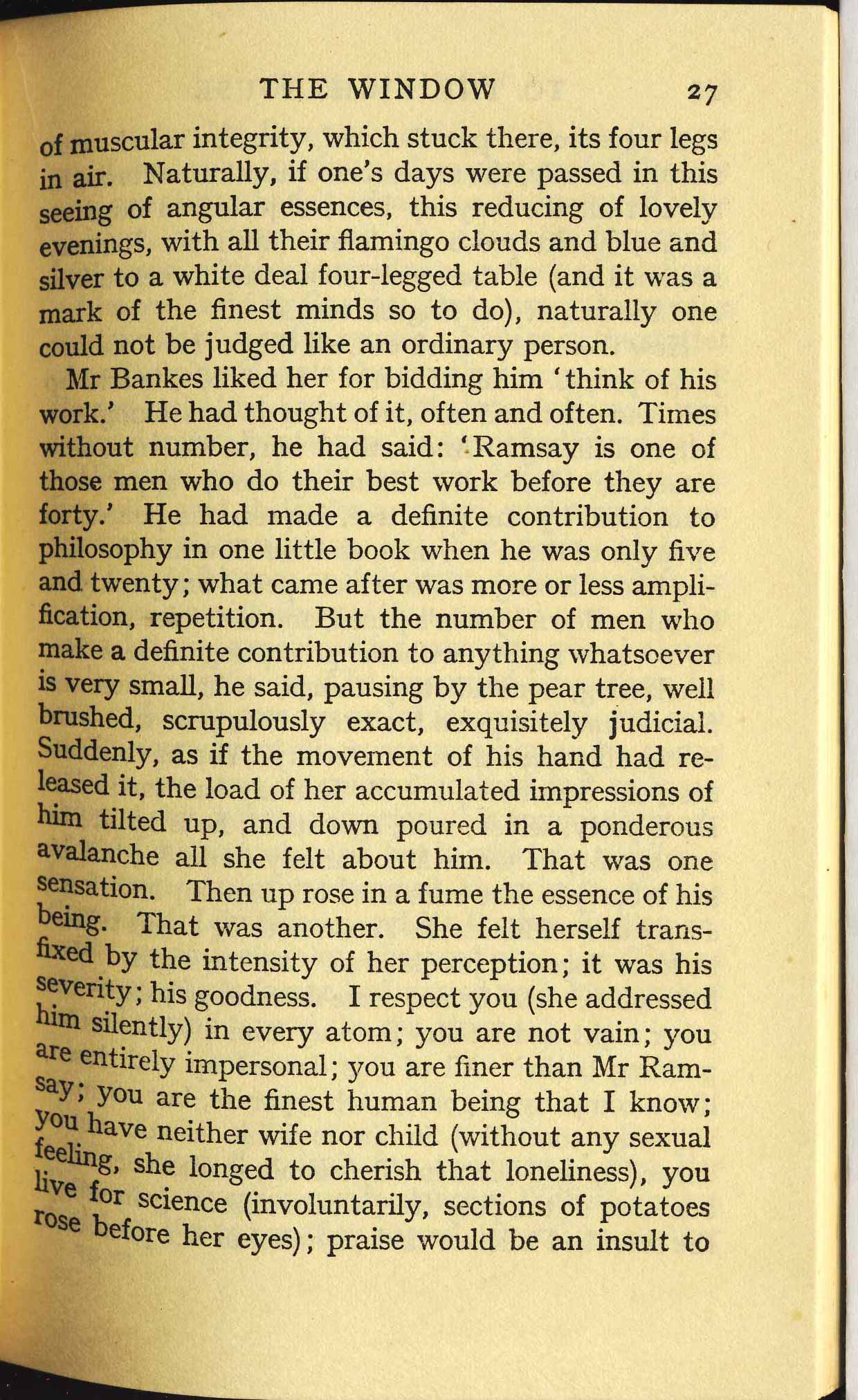
THE WINDOW 27of muscular integrity, which stuck there, its four legsin air. Naturally, if one's days were passed in thisseeing of angular essences, this reducing of lovelyevenings, with all their flamingo clouds and blue andsilver to a white deal four-legged table (and it was amark of the finest minds so to do), naturally onecould not be judged like an ordinary person.Mr Bankes liked her for bidding him 'think of hiswork.' He had thought of it, often and often. Timeswithout number, he had said: 'Ramsay is one ofthose men who do their best work before they areforty.' He had made a definite contribution tophilosophy in one little book when he was only fiveand twenty; what came after was more or less ampli-fication, repetition. But the number of men whomake a definite contribution to anything whatsoeveris very small, he said, pausing by the pear tree, wellbrushed, scrupulously exact, exquisitely judicial.Suddenly, as if the movement of his hand had re-leased it, the load of her accumulated impressions ofhim tilted up, and down poured in a ponderousavalanche all she felt about him. That was onesensation. Then up rose in a fume the essence of hisbeing. That was another. She felt herself trans-fixed by the intensity of her perception; it was hisseverity; his goodness. I respect you (she addressedhim silently) in every atom; you are not vain; youare entirely impersonal; you are finer than Mr Ram-say; you are the finest human being that I know;you have neither wife nor child (without any sexualfeeling, she longed to cherish that loneliness), youlive for science (involuntarily, sections of potatoesrose before her eyes); praise would be an insult to









